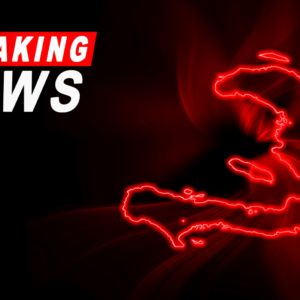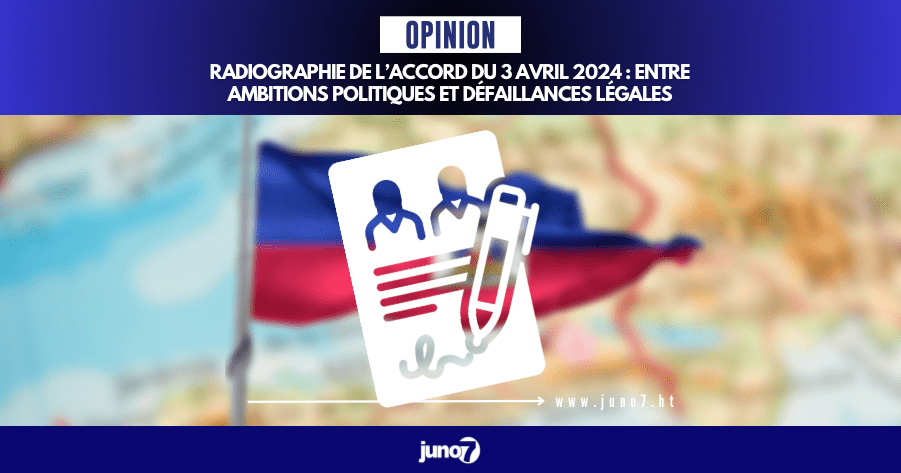Haitian political actors frequently resort to agreements and compromises to overcome crises resulting from their disagreements. These political arrangements often include legal content intended to compensate for the inadequacies and shortcomings of the country’s constitution and laws, the exploitation of which by the executive power is one of the causes of the malaise of Haitian political societies. The relationship between laws and political agreements in times of crisis therefore poses a problem, as evidenced by the agreement of April 3, 2024, because it contains several irregularities:
Firstly, the parties involved in this agreement, namely the Represented (sectors) and the Representatives (natural persons), are not clearly defined. Their names, identifications and addresses are not included. In addition, had the designated Representatives obtained a mandate from their Representatives (sectors) to sign the agreement of April 3, 2024? Why is no mention of mandates included in the agreement?
Second, some sectors mentioned in the agreement do not have legal personality and therefore cannot sign an agreement. Thus, the agreement of April 3, 2024 is null and void due to the lack of legal personality of some of the Represented (sectors). For example, do the associations signing this agreement have legal personality? In other words, are they recognized as being in the public interest? In fact, only recognition of public utility grants legal personality to associations.
Third, the agreement was signed on April 3, 2024, while the members of the Presidential Transitional Council (PTC) were officially appointed by decree on April 16, 2024. Therefore, at the time of signing the agreement, the signatories were only prospective CP; they had not been formally designated and therefore had no capacity to engage the Haitian State in a transition process relating to projects falling within the sovereign power of the State.
Fourth, the agreement of April 3, 2024 allows certain sectors, that is to say Represented, to interfere in the transition process while they have Representatives (CP), creating unacceptable confusion between the Representatives and the Represented and risking paralyzing the Haitian public administration.
In addition, this analysis shows that the publication of the agreement of April 3, 2024 would call into question the process of appointing the Prime Minister (see article 6 of the agreement). The Presidential Transitional Council, to this day, works for the country with efficiency and not for a restricted group (sectors), in compliance with the Constitution and thousands of texts of laws which govern the functioning of the Public Administration Haitian. Why then this stubbornness in wanting to publish an illegal agreement as if the salvation of Haiti would come from this publication?
Will the publication of this agreement really save the Haitian population? Will the publication of this agreement solve the country’s problems? What is the point of making an agreement tainted by irregularities in both form and substance enforceable against third parties? Does the desire to publish the agreement not constitute the ultimate pretension of certain sectors who believe, wrongly, that they would be the only ones able to lead the country when they have often been considered as elements of blocking, reluctant to find compromises for the collective interest?
In conclusion, the agreement of April 3, 2024 has too many legal loopholes to be published. Its publication does not guarantee its execution, as some sectors falsely claim. This publication will allow certain sectors (Represented) to interfere in the governance of the country, via an Assembly composed of 27 members, while the country is currently governed by 9 CP, a Prime Minister and members of his government.
Junior Moschino Remy
Read also :
WhatsApp will simplify calls with a new direct dial interface








